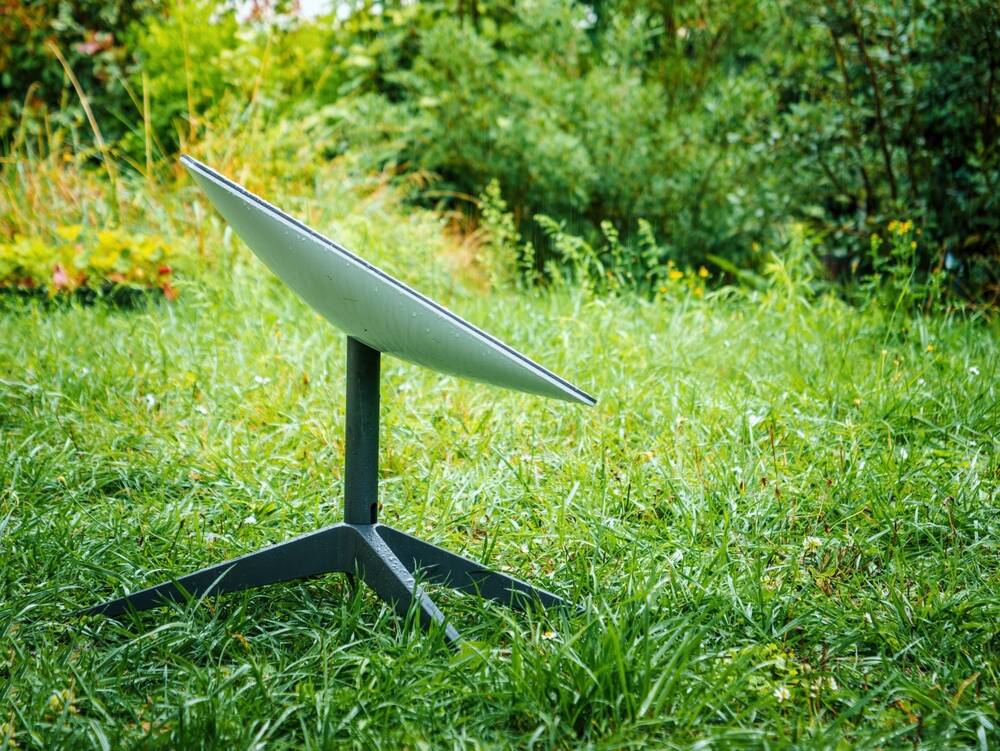SpaceX Cleared To Test Satellite Phone Service Via Starlink

SpaceX has got approval to run tests of a proposed service that allows unmodified smartphones to make calls via a satellite link.
The Federal Communications Commission (FCC), which regulates all things network in the US, has permitted Elon Musk's space biz to pilot direct-to-cellular communications between everyday cellular phones and its Gen2 Starlink satellites.
The space-faring company said in its application that "experimental" authority was needed to carry out tests as the FCC is still processing SpaceX's application "to enable supplemental coverage from space for consumers on a permanent basis."
SpaceX has 180 days to carry out its trials, and said in its application these will involve approximately 840 satellites with direct-to-cellular payloads, approximately 60 of which will be serving handsets in the US under this experimental authorization at any given time.
The tests are set to be conducted using frequencies in the 1910-1915 MHz and 1990-1995 MHz bands, otherwise known as the PCS G Block, with the cooperation of T-Mobile USA, which is the licensee of these bands.
T-Mobile and SpaceX announced plans last year to use satellites in low Earth orbit to provide a cellphone service, claiming this would extend coverage to remote locations across the US and its territorial waters.
Starlink even started advertising a Direct to Cell satellite phone service on its website in October, claiming this would include a text messaging service starting in 2024, with voice and data features added in 2025.
SpaceX reckons it will expand coverage via agreements with carriers in other regions, listing potential candidates as Rogers in Canada, Optus in Australia, One NZ in New Zealand, Salt in Switzerland, and KDDI in Japan.
This experimental authorization follows an earlier partial authorization from the FCC for SpaceX to deploy and operate the Gen2 Starlink satellites themselves, which was granted only at the start of this month.
The FCC said that action would allow SpaceX to begin rolling out Gen2 Starlink, ultimately bringing high-speed satellite broadband to Americans nationwide, and it would protect other satellite and terrestrial operators from harmful interference and maintain a safe space environment.
They're interfering with us
But not everyone is as excited as CEO Elon Musk is about the move. Earlier this year, AT&T filed a petition with the FCC attempting to block T-Mobile and Starlink’s plans, claiming that satellite-based phone operations might disrupt adjacent frequency blocks – of which it is a licensee - and interfere with terrestrial wireless services.
This is a genuine risk, Gartner VP analyst Bill Ray told us at the time, as Starlink's satellites have a much smaller antenna compared with rivals such as AST SpaceMobile.
"SpaceMobile's point of differentiation is its huge antenna, which makes it capable of putting down a small spot beam which limits interference. Starlink's V2 satellites have a tiny antenna, by comparison, which means bigger spot footprints and more potential for interference," he said.
It would appear from the latest FCC notices that Starlink is at least going to get the chance to prove whether its technology is up to the task.
- FCC really, truly won't give SpaceX nearly a billion bucks for Starlink rural broadband
- FCC Commissioner demands review of Starlink rural broadband subsidies
- Amazon hitches a ride with SpaceX for Project Kuiper launches
- Amazon's Project Kuiper thrusters deliver Prime orbit adjustments
However, the company hasn’t got everything its own way, as the FCC also this week turned down SpaceX's bid for $885 million in subsidies from the Rural Digital Opportunity Fund (RDOF) to provide internet service to the most remote areas of the US.
Elsewhere, Amazon announced successful in-orbit testing of optical inter-satellite links as part of its Project Kuiper Protoflight mission.
In the first update about the mission since KuiperSat-1 and KuiperSat-2 were launched last month, the company said it has carried out 100 Gbps tests between the two that clear the way for the first production satellites for its broadband service to launch next year. ®
From Chip War To Cloud War: The Next Frontier In Global Tech Competition
The global chip war, characterized by intense competition among nations and corporations for supremacy in semiconductor ... Read more
The High Stakes Of Tech Regulation: Security Risks And Market Dynamics
The influence of tech giants in the global economy continues to grow, raising crucial questions about how to balance sec... Read more
The Tyranny Of Instagram Interiors: Why It's Time To Break Free From Algorithm-Driven Aesthetics
Instagram has become a dominant force in shaping interior design trends, offering a seemingly endless stream of inspirat... Read more
The Data Crunch In AI: Strategies For Sustainability
Exploring solutions to the imminent exhaustion of internet data for AI training.As the artificial intelligence (AI) indu... Read more
Google Abandons Four-Year Effort To Remove Cookies From Chrome Browser
After four years of dedicated effort, Google has decided to abandon its plan to remove third-party cookies from its Chro... Read more
LinkedIn Embraces AI And Gamification To Drive User Engagement And Revenue
In an effort to tackle slowing revenue growth and enhance user engagement, LinkedIn is turning to artificial intelligenc... Read more

